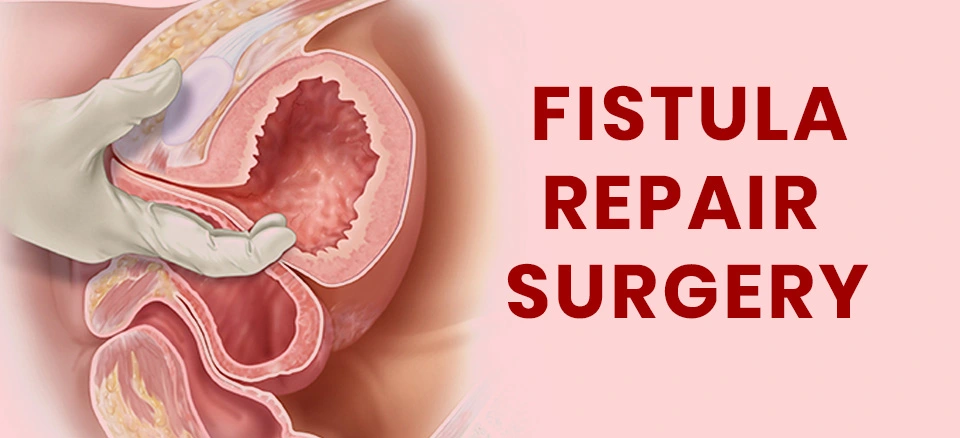[vc_row][vc_column][vc_column_text]
Surgery to repair fistulas is an ideal way preferred to treat an improper connection between two organs or blood vessels in the body. To restore normal function and avoid additional issues, fistula repair surgery aims to shut down the aberrant route between the organs or veins.
Symptoms of Fistula
According to the organs or tissues involved, as well as the placement of the fistula, different symptoms may be present. Here are some typical signs and symptoms of various fistula types:
Anal Fistula:
- Constant discomfort in the anus.
- Redness or swelling near the anus.
- A pus- or blood-filled discharge from a wound close to the anus.
- Inflammation or itching in the anus region.
Urinary Fistula:
- Urinary incontinence
- Repeated infections of the urinary tract.
- Lower abdominal ache.
Gastrointestinal Fistula:
- Discomfort or pain in the abdomen.
- Vomiting or nauseous or diarrhoea.
- Weight loss.
Vesicovaginal:
- Inflammation or pain in the pelvic region.
- Intense sexual contact.
- Irritation of the vagina.
Causes of Fistula
- Trauma, inflammation, infection, or after-effects of prior surgeries are core reasons.
- Gastrointestinal disorders like Crohn’s disease or diverticulitis can create fistulas between various sections of the digestive system.
- An infection in the anal gland or a rupture in the anal lining are two common causes of anal fistula development.
- Radiation therapy, pelvic surgery, problems after delivery, and persistent infections are a few examples of causes of genitourinary fistulas.
- Injuries to the organs or blood vessels and some medical treatments can also result in fistulas.
Treatment- Types of Fistula Surgery
Fistula Operations come in various forms, and the best one depends on the individual situation. Typical illustrations include:
- Fibrin glue injection: In this minimally invasive treatment, the fistula is sealed by injecting a specific adhesive. Usually, this is applied to little, straightforward fistulas.
- Seton placement: To keep the fistula tract open and permit appropriate elimination, a seton is a substance that resembles a thread inserted into the fistula tract. This method, which can be supplemented with other treatments, is frequently used for complex or deep fistulas.
- Flap reconstruction: In this operation, a flap is made from neighbouring healthy tissue and utilised to cover and seal the fistula. For anal fistulas, flap repair is frequently employed.
- Fistulotomy: In this technique, the fistula surgeons open the fistula tract, any diseased or wounded tissue is removed, and the incision is then left to heal internally. Simple, surface fistulas are often treated with fistulotomy.
- Fistula plug or patch: To seal the fistula tract and encourage healing, a biological substance, such as an absorbable plug or a synthetic patch, may be employed.
- Advanced strategies: Advanced procedures for Fistula Surgery Treatment, like video-assisted anal fistula therapy (VAAFT) or endorectal advancement flap, may be explored under challenging instances or when conventional methods fail.
Conclusion
To do an accurate evaluation for fistula repair surgery hospitals in Punjab, make the best choice. It is imperative to seek guidance from a qualified healthcare professional, such as a surgeon of a Plastic Surgery Hospital in India like Amandeep Hospital.
[/vc_column_text][/vc_column][/vc_row]


